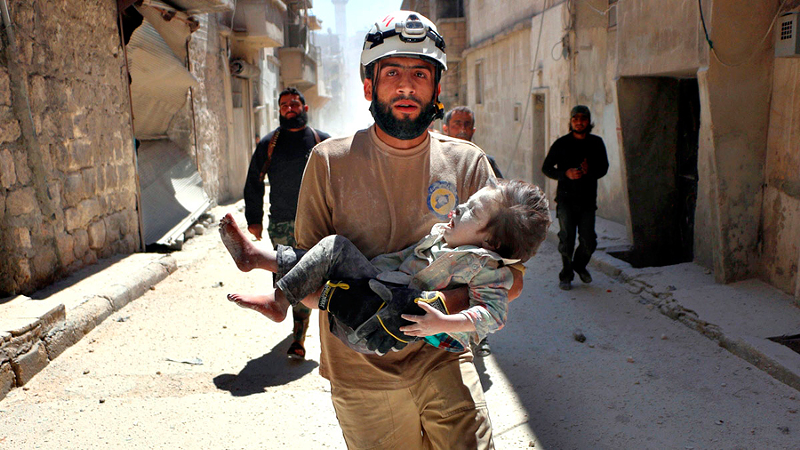As always, this aim syncs up with eligibility requirements for documentary films as defined by the Motion Picture Academy of Arts and Sciences, which states that films must be “theatrically released nonfiction motion picture dealing creatively with cultural, artistic, historical, social, scientific, economic or other subjects.”
But there is a particular emphasis “on fact and not fiction.” This is where the rub lies because the election cycle, which is barely in our rearview, upended all of our notions about what is “fact” or “fiction” and how we might determine the difference between what is “real” versus “fake” when it comes to news and information — the very tools necessary for critical exchanges.
Welcome to post-truth America!
What the current slate of films nominated in the Documentary Short category provides us with is a certain indisputable truth. The camera’s eye sees the events unfolding; it stands there, representing us, at times directly pulling us into the action.
For instance, in Orlando von Einsiedel’s The White Helmets, we are on the ground in Syria, with a group of first responders who race headlong into the rubble of fresh airstrike targets seeking to rescue victims and honor the dead. The White Helmets were founded in 2013 and adhere to the motto: “To save a life is to save all of humanity,” but we see how difficult the work is and ultimately how not every life can be saved.
From our privileged perspective, America can debate this reality, but the nominated shorts remind us that each and every moment, event and celebration from this point forward requires an acknowledgement. We must document and remember the facts, and we must be ready and willing to call forth our remembrances, to testify in support of history.
The truth is evidenced in the sharing of facts. Yet, on the surface, documentary shorts seem to face a challenging hurdle. How is a film to delve into complex subjects and push narrative boundaries while handicapped with such time constraints?
Two of this year’s nominated filmmakers, Daphne Matziaraki (4.1 Miles) and Dan Krauss (Extremis) transformed the limitation into a strength, wasting little time with prologues and character introductions, trusting audiences to dive into the scenes of crises and sink or swim. 4.1 Miles sets up among a coastal patrol crew on the Greek isle of Lesbos that races out multiple times a day to rescue Turkish migrants stranded in the sea. Extremis situates us in an American hospital where families and medical teams grapple with the complex decisions facing patients nearing the end of life. The central question — who decides how we die with dignity — has no easy answer.
As with The White Helmets, the other films in this category — Joe’s Violin and Watani: My Homeland — grant us greater access to the subjects. In the former film, director Kahane Cooperman shows us the impact of giving via a 91-year old Holocaust survivor in New York City who donates his violin to a 12-year old girl in the Bronx.
Watani, from Marcel Mettelsiefen, takes us back to Syria and to a family enmeshed in that country’s civil war. Once the husband, a freedom fighter, is taken and presumed dead, the mother decides to pack up her children and seek asylum in a small town in Germany.
Each of the nominated films examines whether or not some aspect of culture, history or life itself can be lost in safety, but also entwined in these dramatic narratives is a recognition that there is an underlying human truth that must be shared. I would argue that what Cincinnati World Cinema and this powerful slate of films are reminding us is that there is no meaningful state or stage beyond these self-evident truths.
Cincinnati World Cinema will host presentations of the OSCAR-NOMINATED SHORT DOCUMENTARIES Feb. 11 and 12 at Memorial Hall. For more information, visit cincyworldcinema.org.






